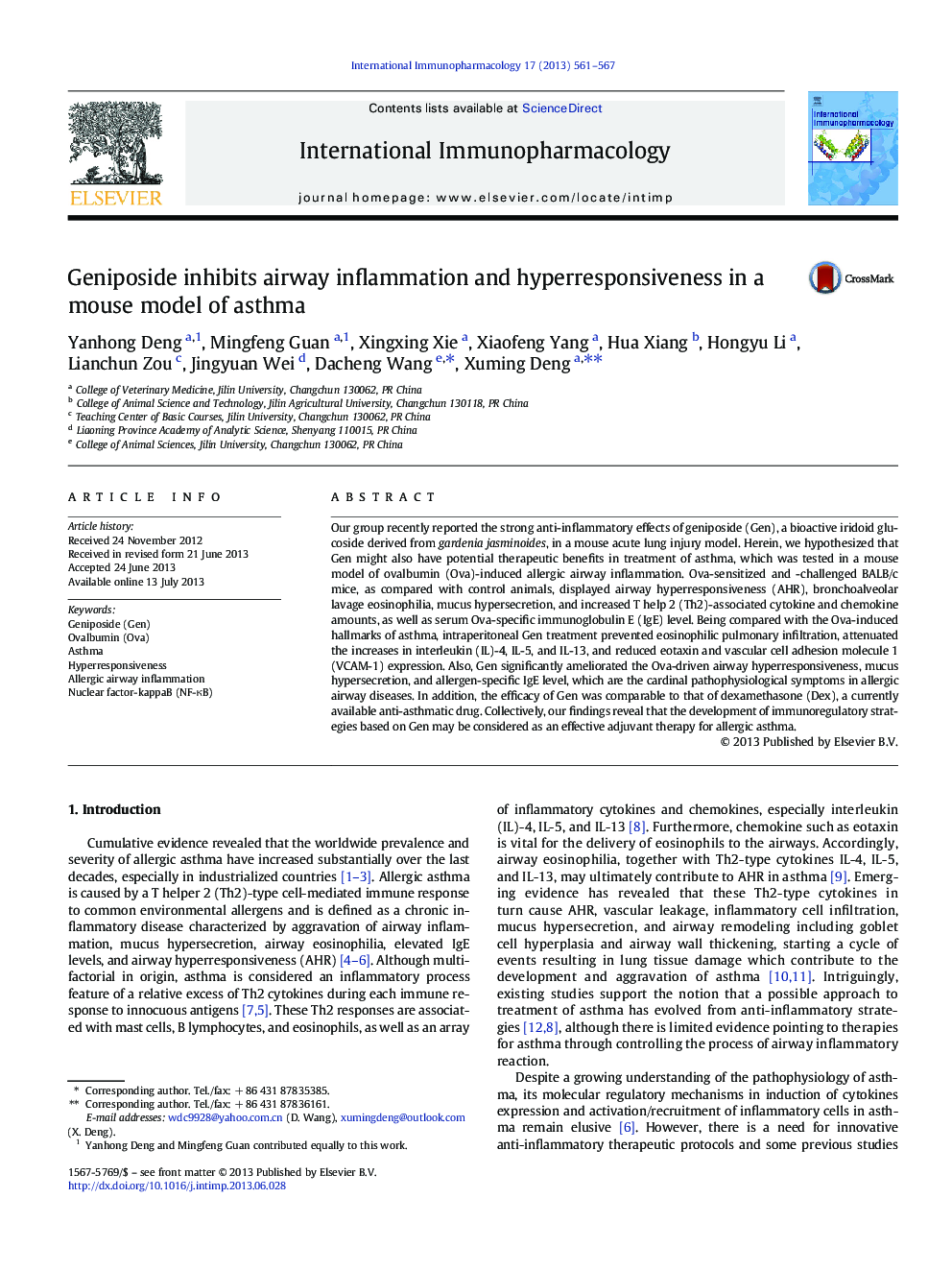| Article ID | Journal | Published Year | Pages | File Type |
|---|---|---|---|---|
| 5833113 | International Immunopharmacology | 2013 | 7 Pages |
Abstract
Our group recently reported the strong anti-inflammatory effects of geniposide (Gen), a bioactive iridoid glucoside derived from gardenia jasminoides, in a mouse acute lung injury model. Herein, we hypothesized that Gen might also have potential therapeutic benefits in treatment of asthma, which was tested in a mouse model of ovalbumin (Ova)-induced allergic airway inflammation. Ova-sensitized and -challenged BALB/c mice, as compared with control animals, displayed airway hyperresponsiveness (AHR), bronchoalveolar lavage eosinophilia, mucus hypersecretion, and increased T help 2 (Th2)-associated cytokine and chemokine amounts, as well as serum Ova-specific immunoglobulin E (IgE) level. Being compared with the Ova-induced hallmarks of asthma, intraperitoneal Gen treatment prevented eosinophilic pulmonary infiltration, attenuated the increases in interleukin (IL)-4, IL-5, and IL-13, and reduced eotaxin and vascular cell adhesion molecule 1 (VCAM-1) expression. Also, Gen significantly ameliorated the Ova-driven airway hyperresponsiveness, mucus hypersecretion, and allergen-specific IgE level, which are the cardinal pathophysiological symptoms in allergic airway diseases. In addition, the efficacy of Gen was comparable to that of dexamethasone (Dex), a currently available anti-asthmatic drug. Collectively, our findings reveal that the development of immunoregulatory strategies based on Gen may be considered as an effective adjuvant therapy for allergic asthma.
Keywords
Related Topics
Life Sciences
Immunology and Microbiology
Immunology
Authors
Yanhong Deng, Mingfeng Guan, Xingxing Xie, Xiaofeng Yang, Hua Xiang, Hongyu Li, Lianchun Zou, Jingyuan Wei, Dacheng Wang, Xuming Deng,
